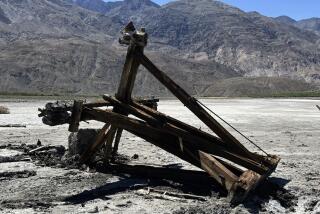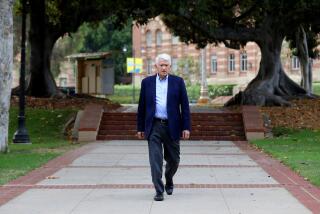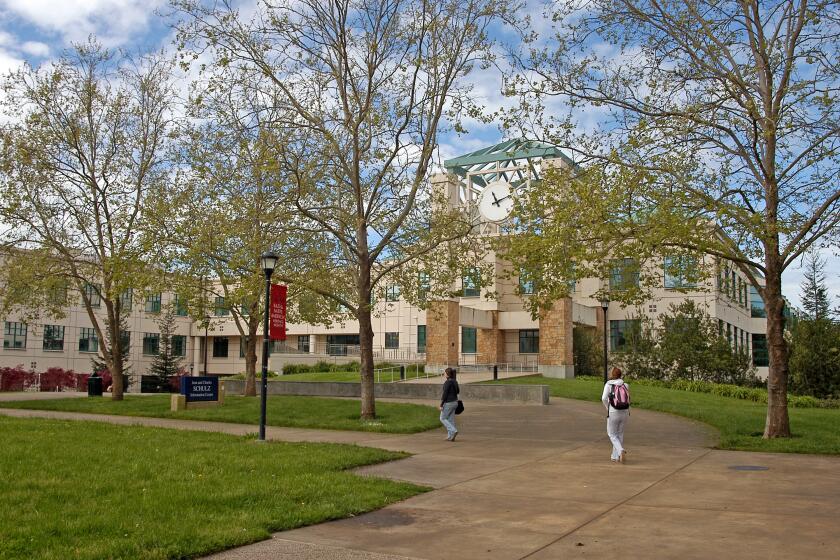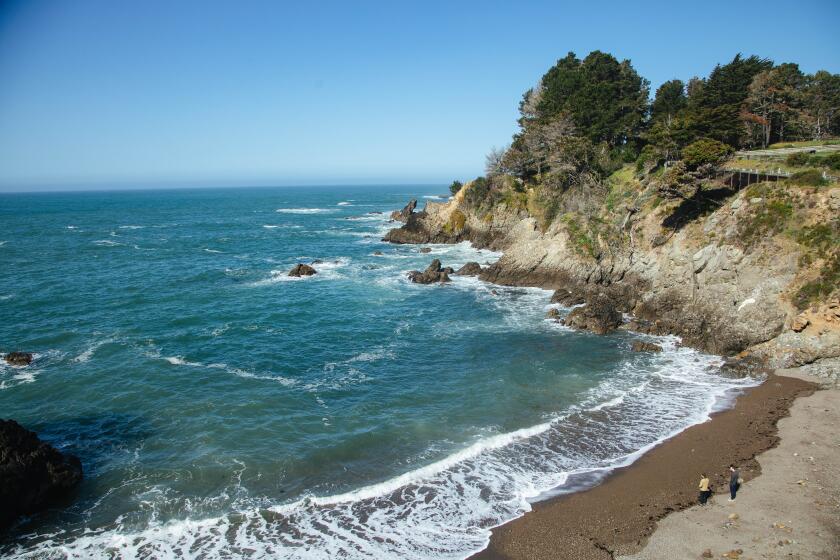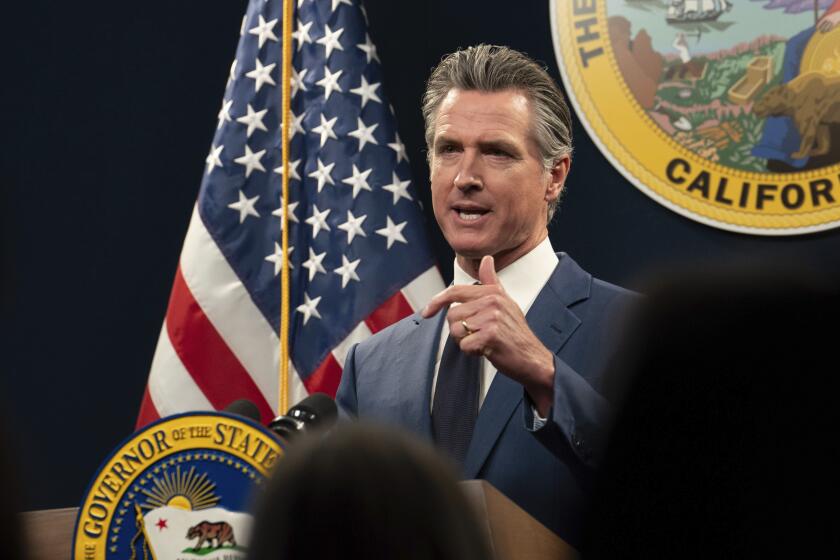Plan to cut port air pollution assailed
Two trade associations representing many of the world’s largest companies urged the Federal Maritime Commission on Thursday to stop a plan to replace the most-polluting trucks that move cargo in and out of the nation’s busiest container port complex.
Under the plan to be voted on by the governing bodies for the ports of Los Angeles and Long Beach, the aging diesel trucks that are a leading cause of unhealthful air would be replaced, possibly at industry expense, as part of a plan to reduce port pollution by 45%. The trucks, mostly owned and operated by low- income immigrants, would be replaced within five years.
But the plan “will likely cause major disruptions in cargo flows through the ports of Los Angeles and Long Beach. This is a serious matter that deserves the prompt attention of the commission in order to preserve the efficient flow of U.S. foreign trade through these ports,” said the 14-page letter from the Pacific Merchant Shipping Assn. and the National Industrial Transportation League.
Members of the two trade groups include Wal-Mart Stores Inc., Exxon Mobil Corp., General Motors Corp. and Dow Chemical Co. The ports, which handle more than 40% of all retail goods imported to the U.S., responded with a letter signed by Geraldine Knatz and Richard Steinke, the executive directors, respectively, of the ports of Los Angeles and Long Beach.
“We cannot represent to the Federal Maritime Commission that the final Clean Truck Program will be universally acclaimed. We can commit, however, that it will reflect the ports’ best efforts to protect the health of our citizens and the continued vitality of the significant portion of commerce of the United States that moves through the ports,” the letter said.
The trade groups said the ports’ efforts to transform the trucking fleet amounted to a violation of the federal shipping act of 1984, which is one of the three principal statutes the commission is charged with enforcing. U.S. maritime officials didn’t respond to requests for comment.
More to Read
Start your day right
Sign up for Essential California for news, features and recommendations from the L.A. Times and beyond in your inbox six days a week.
You may occasionally receive promotional content from the Los Angeles Times.

